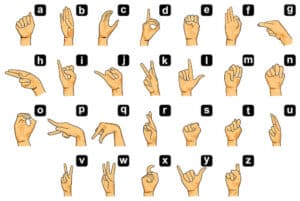How to be smart in talking and sound eloquently

What is eloquence?
Eloquence is an ability to express thoughts with clarity and richness of language, power of persuasion, and smooth-talking. Eloquence is a valuable skill for everyone working in sales, management, politics, etc. But, regardless of the occupation, this skill is helpful in daily life: when you want to express your thoughts clearly and build the image of an intelligent person.
Eloquence is a skill that you can master. It’s more than just the ability to use your language smartly. It’s also about self-confidence and non-verbal communication. But the first step to speaking more intelligently is actually to have something intelligent to say, right? That’s why it’s crucial to boost your knowledge, memorize interesting facts and work on vocabulary first. These are some of the powerful tools to make you more intelligent, more confident, and, consequently, eloquent. In this article, we gathered some efficient ways that might help you to speak more eloquently.
Choose quality reading
Reading is a fundamental instrument for gaining more knowledge, so relying on quality materials is essential. You can look amongst the most rated books on Amazon, New York Times, etc., to choose books. Also, read short articles, subscribe to Instagram pages with fun facts, take online courses on history/psychology/health, etc. Even 15-30 minutes of quality reading daily gives the brain an efficient exercise.
Read fiction to boost your vocabulary
One thing is to know much stuff, another to voice this knowledge. And novels provide us with a superb example of how to deliver thoughts and build sentences. Fiction literature shows us examples of using language more fluidly, enriching it with synonyms, adjectives, etc.
Listen and learn how to be eloquent in speaking
Our brain loves variety because it helps activate different parts and change intensity. In addition to reading, try using audiobooks, podcasts, and interviews to grasp knowledge on the go. Plus, you can take an example of how the hosts and experts talk, how they build their sentences and develop their thoughts. Right down the phrases you liked and new ideas with explanations, and try using them in your daily conversation.
Practice the active listening technique
In communication, it’s equally important to talk and listen to others. Usually, our brains remember 25-50% of what people say. But we can learn from people and show our smartness with the active listening technique. Shortly speaking, it’s about a conscious effort to hear others: not just separate words, but the meaning of the message. Active listening helps us to learn something and better understand information. How can we use it to show smartness?
Presumably, your friend\colleage explains to you about dark holes, you stay focused till the end, and then say, “So, Marvin, you’re telling that …” and shortly summarise his speech. First, you will memorize this information much better because you’ve repeated it in your own words. Second, you show that you do understand = you’re smart enough. So, active listening is beneficial both as a learning technique and a sign of your intelligence.

Stick with a clear vocabulary
Enlarging your vocabulary is a handy tip for learning to speak eloquently. Nonetheless, it’s better to use words you know than tell something well…stupid. If you are unsure what abibliophobia means, do not use it in a sentence until clarifying (BTW, it’s a phobia to run out of books to read).Another side here is not to over-smart in the conversation using specific jargon. Try using a more clear universal vocabulary to say something in your area of expertise to your cousin who doesn`t have a clue. This super-smart terminology means nothing to him, so this kind of intelligent speaking is useless. Your ability to explain in simple words will manifest your smartness better than any jargon.
Install Nerdish
We created the Nerdish app as a universal source of knowledge about everything on the globe. Here you can find stories based on profound research yet easy to read. Learn about history, politics, the human body, food, art, and daily things within your smartphone reach. We loaded every story with fan facts you can share with your friends and sound super smart to them.
Instead of scrolling your social media without many purposes, you can use this time to learn and become more competent. Every material takes about 10-15 minutes to read so that you can fill your subway time with knowledge. Also, the app has a time tracker that will motivate you to read more every day and give your brain an efficient exercise.
Use your body to deliver your messages
Apart from verbal communication, there is a non-verbal one that we activate with our bodies. Poses, gestures, and tone of voice are those powerful instruments that help you become a more eloquent speaker. Body language helps convey clear messages to the world and make oneself better understood.
You are more likely to make people think you’re smart when you radiate confidence. Square your shoulders, stand straight, lose your hands and open your palms: these are the gestures of a confident, knowledgable person.
TIP: to get some guidelines, watch videos of your favorite speakers on Ted-Talks to see how they use non-verbal communication during their speeches. Also, there are many books on this subject, like the classical piece by Allan Pease, “Body Language.”
Make an eye contact
In addition to poses and gestures, one of the most important things is to make direct eye contact. People are keen to perceive hidden eyes as a sign of a lie. Accordingly, we show we have nothing to hide and sound more trustworthy thanks to eye contact. With our eyes, we fix a connection with another person and hold his\her attention to what we are saying.
Speak loudly and make pauses
An eloquent orator doesn’t afraid to speak up his/her mind loudly. We’re not talking about crying out, but surely not whispering. A steady and even voice catches more attention, showing that you are confident in your words. Another important thing to make yourself sound smart is pausing after each thought so that they don’t mix up. And keep a medium speech temp: not too fast to gulp the words, but not too slow, like boringly sllllooooooooooowwww.
TIP: to check it out, you can tape yourself talking to listen afterward: is your temp sounds okay, are you talking loudly enough, are you making pauses? You can compare your records with some public speakers you like and alter your performance.
Make widely-known references
Literature and TV, history, and pop culture have given us plenty of cases we can rely on to make our point. Try allusions to universally known things\events to better explain your ideas or enrich your speech. It can even be a quote from Shakespeare like “Something is rotten in the state of Denmark.”
However, the trick with references is that not everyone will get them. For example, French people might not get cultural references from Americans and vice versa. That’s why better rely on universal things.
Avoid filler words
There is nothing new in this chapter, as filler words cut our language flaws and make us sound less professional and eloquent. All these well, umm, like, you know, so, kind of, yeah are not bad as they are, but make our story harder to follow when used frequently.
First, consciously make an effort to avoid them. Yes, it’s not easy, but it’s an efficient remedy that works in a week or so. If you don’t know your filler words, ask someone to highlight them for you.
Second, think ahead of what you want to say. As a result, your sentence will go out more smoothly and without useless words. And those pauses we’ve mentioned above will give you time to prepare your phrases.
Practice being a smart talker with your close ones
To become more confident in communication with others, try your skills with your family members. When you read an article or book, watch a documentary, or listen to a podcast, you can revive its content to your close ones. You don’t have trouble talking to them on daily matters, do you? So, try more advanced topics as well and practice speaking with eloquence. As soon as you learn that you can discuss clever stuff with your people, it will be easier to conduct these talks with colleagues and others.













